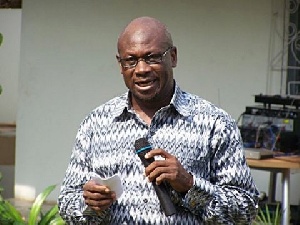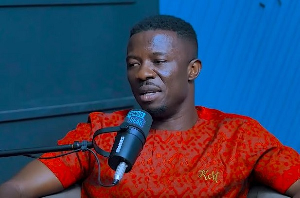Corruption is not far from us, we experience it in our social spaces-through influence peddling, facilitating transactions and petty bribery, Mr Amidu Ibrahim-Tanko, STAR-Ghana Programme Director, has said.
“By ‘abusing entrusted power for private gain’, both the giver and the receiver are guilty of willfully depraving Ghanaians high levels of service delivery we deserve, regardless of our geographic location, gender attribution, social status or political affiliation,” Mr Ibrahim-Tanko said in a speech read on his behalf during the International Anti-Corruption Day.
“It is said that ‘the worse disease in the world today is corruption….. but there is a cure, and that cure is transparency’” he said.
“This means that tackling corruption must corruption must be done collectively, we must all put our shoulders to the wheel and challenge the structures and systems that continue to perpetuate this,” he added.
The National Anti-Corruption Week Celebration dubbed “ACT 6/0” from Monday, December 4 to Saturday, December 9, is under the theme: “National Anti-Corruption Action Plan (NACAP): Strengthening Public, Private, and Civil Society Partnership in the Fight Against Corruption”.
It is being organised by the Commission on Human Rights and Administrative Justice (CHRAJ) in collaboration with other partners such as STAR-Ghana, the Ghana Anti-Corruption Coalition, the Attorney General’s Department, the National Commission for Civic Education, the Economic and Organised Crime Office, the United States Embassy and the European Union.
It would be recalled that on July 3, 2014, Parliament adopted the NACAP as a non-partisan strategic plan to combat corruption in the country.
The NACAP envisions a sustainable democratic Ghanaian society founded on good governance and imbued with high ethics and integrity.
The week sought to review the state of corruption and the progress made in the implementation of NACAP and anti-corruption measures generally.
Mr Ibrahim-Tanko said STAR-Ghana, continues to support the fight against corruption in many ways, stating that “With funding from the UK Aid, the DANIDA and the European Union and through work at local and national level with partners, we have committed an amount of GH¢ 14,402,000 which is equivalent to £2,717,433 to ongoing and future work on anti-corruption across Ghana”.
“Further, our current anti-corruption call recognises that it is not enough to do business as usual, and that whilst we must build on what has been successful in the past, we must also have the courage to try out new ways of working,” he said.
He said the NACAP continues to be an integral part of the overall strategy to combat corruption in Ghana; stating that “the successes that the NACAP has achieved since its inception in 2014 must be commended but there is room for progress”.
Mr Richard Quayson, the Deputy Commissioner of CHRAJ, said whenever corruption flourishes, human rights could not flourish.
He explained that whenever corruption flourishes it had adverse effects on the flourishing of human rights; stating that “so if we really want to enjoy rights and to enjoy them in full measure then we have to do everything to fight corruption and to build integrity in our society”.
He urged traditional rulers, the law enforcement agencies and the media to play their part in the fight against corruption in society.
Ms Maria-Luisa Troncoso, the Head of Governance Section, EU Delegation to Ghana, said commended CHRAJ for bringing together many players in the fight against corruption.
She said the EU - Ghana Anti-Corruption, Rule of Law and Accountability programme was a five year programme aimed at supporting the NACAP.
She said the objective of the programme was to strengthen law enforcement agencies - this includes building the capacity of prosecutors to prosecute corruption and related offences.
She noted that it also sought to build the capacity of the Judiciary to hear and decide corruption cases and related offences, as the best means of enhancing accountability standards in country.
General News of Sunday, 10 December 2017
Source: ghananewsagency.org













